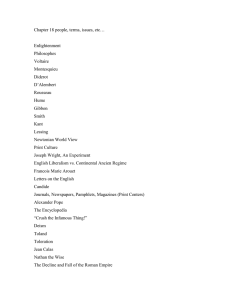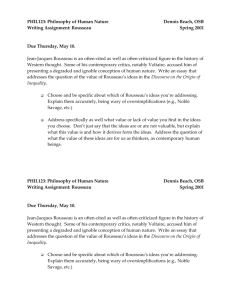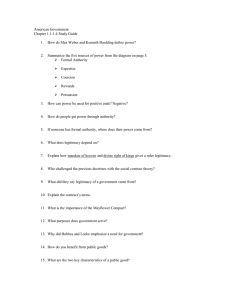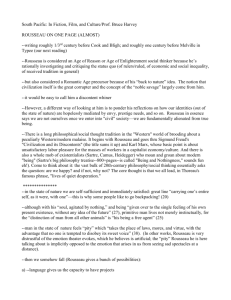Rousseau's Social Contract Theory: Lecture Notes
advertisement
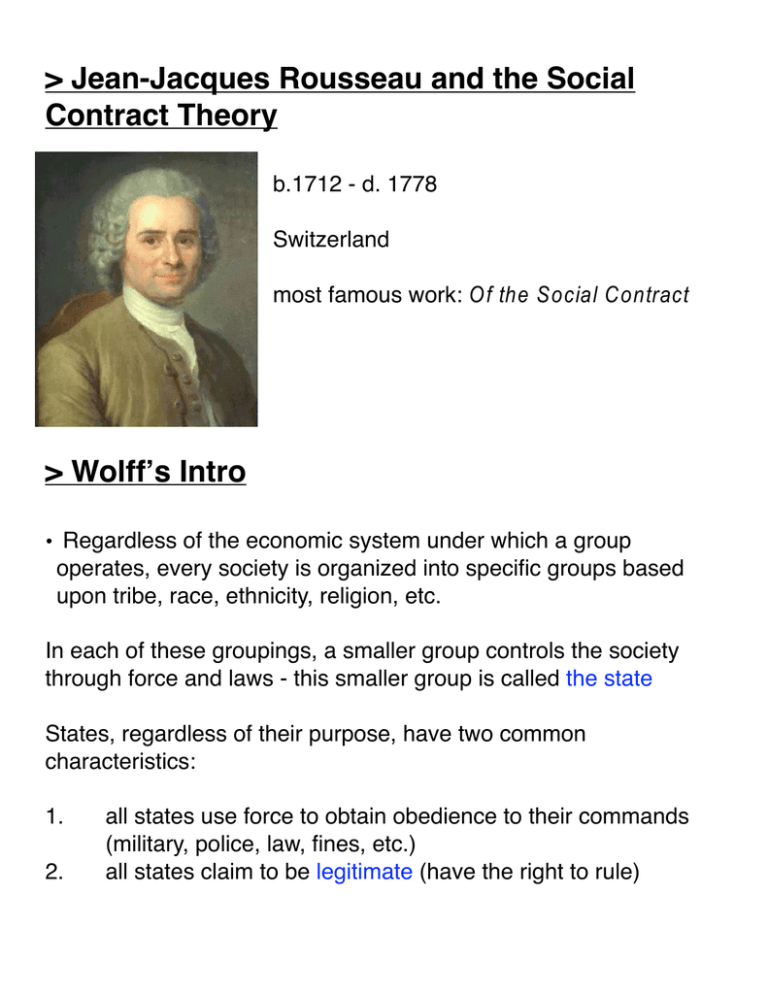
> Jean-Jacques Rousseau and the Social Contract Theory b.1712 - d. 1778 Switzerland most famous work: Of the Social Contract > Wolff’s Intro • Regardless of the economic system under which a group operates, every society is organized into specific groups based upon tribe, race, ethnicity, religion, etc. In each of these groupings, a smaller group controls the society through force and laws - this smaller group is called the state States, regardless of their purpose, have two common characteristics: 1. all states use force to obtain obedience to their commands (military, police, law, fines, etc.) 2. all states claim to be legitimate (have the right to rule) • Generally, people accept the state’s claim of legitimacy and obey even when they are not actually forced to do so • this belief in the legitimacy of the state is what holds a society together, but that does not necessarily make the state actually right in its claim of legitimacy • the fundamental questions for Rousseau, then, became: When, if ever, does a state have a right to claim legitimacy? Does a citizen ever have an obligation to obey the commands issued by the state? Is there any way a citizen can submit to the will of the state without giving up his or her freedom and autonomy? > Rousseau’s Philosophy • Rousseau’s answer to the fundamental questions of legitimacy and obedience was the social contract • the idea was taken from law, in which two parties enter into a contract for mutual benefit • each member of the contract owes obedience because they a) entered into the contract freely, and b) they benefit from the contract • so the state has the right to claim legitimacy because their legitimacy is granted to them by the citizens • the citizens, in turn, have to obey the state because they agreed to and further because the state protects the rights of the citizens • Rousseau argued that when a disagreement arises either between the state and its citizens, or among the citizens themselves, the General Will must be followed (majority rule) • Rousseau claimed that if the state truly ruled in the best interest of society, then everyone will want what is best for the group • those that oppose the majority, then, actually put their own freedom in peril, for the state in a social contract seeks to protect the freedoms of its citizens • Rousseau argued that those people, then, have to be forced by the general will to obey in order to protect their individual liberties in spite of the themselves

